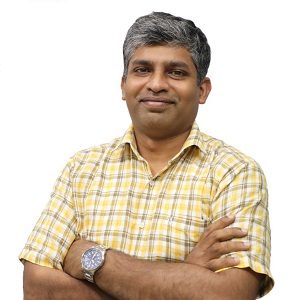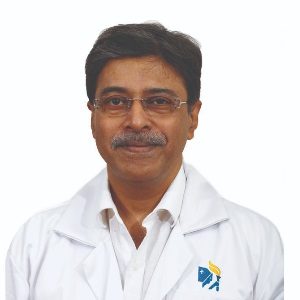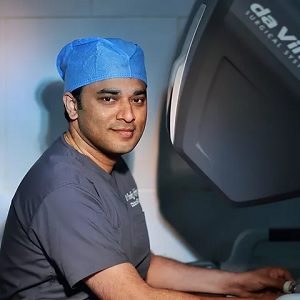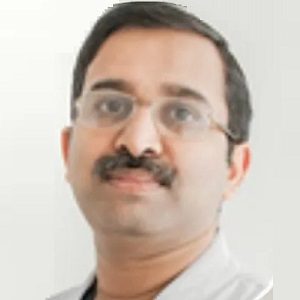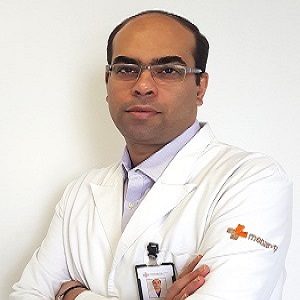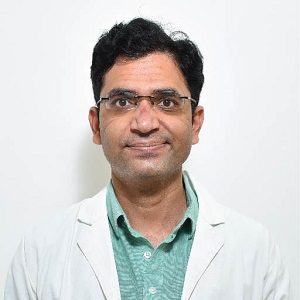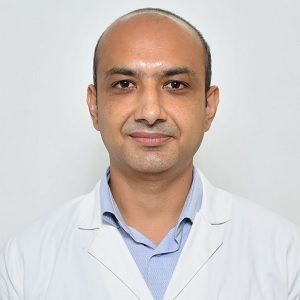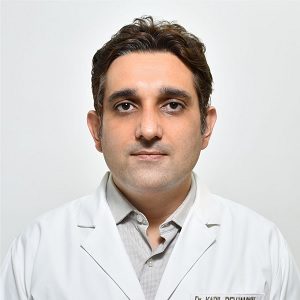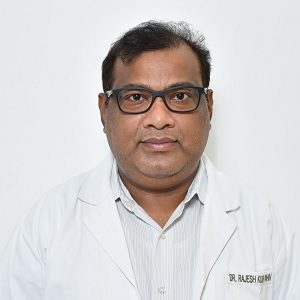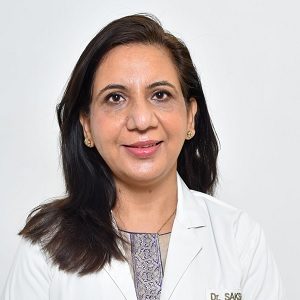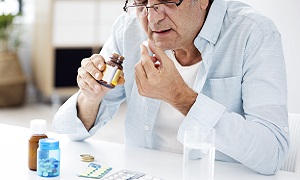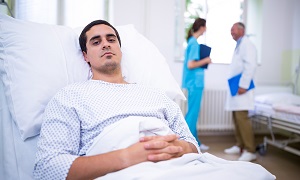Best Doctors in India for Colonoscopy
- Liver Transplant Surgeon and HPB Surgeon, Chennai, India
- Over 15 years’ experience
Profile Highlights:
- Dr. Selvakumar Naganathan is one of the best liver transplant surgeons in India with nearly 15 years of experience.
- He has carried out more than 2000 procedures, including 300 donor & 500 recipient hepatectomies, cadaver transplantations, retrieval of cadaver livers, and live donor liver transplants.
- He also established many liver transplantation centers across India & other countries.
- General Surgeon and Surgical Gastroenterologist, Chennai, India
- Over 27 years’ experience
Profile Highlights:
- Dr. Raghunath K J is a well-known name in the field of general surgery with an experience of more than 27 years.
- He went under training in advanced Laparoscopic surgery from Canada and France.
- Dr. Raghunath pioneers many prestigious projects in the UK.
- Dr. Raghunath has a specialized interest in Gall Bladder Stone treatment, Hernia, GI Cancer Surgery, Laparoscopic Sleeve Resection, Endoscopic Surgery, etc.
- Colorectal Surgeon and Robotic Surgeon, Chennai, India
- Over 26 years’ experience
Profile Highlights:
- Dr. Venkatesh Munikrishnan is one of the best Gastroenterologists and Colorectal Surgeons in Chennai, having 21 years of experience in managing disorders that need surgical treatment.
- Dr. Munikrishnan specializes in surgical oncology, endoscopy, Gastritis Treatment, etc.
- He is also active in research; one of his research on CT Colonography fetched a grant from Bracco, Milan, Italy.
- GI Surgeon and Liver Transplant Surgeon, Gurugram, India
- Over 20 years’ experience
Profile Highlights:
- Dr. Amit Nath Rastogi is a pioneer in the field of liver transplant surgery. He completed his fellowship in liver transplant surgery at Sir Gangaram hospital while being a part of the largest liver transplant program in the country.
- Furthermore, he received his training in robotic liver surgery from IRCAD -Strasbourg, France, and advanced robotic HPB training from Grosseto.
- Liver Transplant Surgeon, Gurugram, India
- Over 10 years’ experience
Profile Highlights:
- Dr. Prashant Vilas Bhangui is one of the highly trained liver transplant specialists who received his training in Surgical Gastroenterology and Liver Transplantation.
- He also holds a European Inter-University Diploma in Hepato-Biliary-Pancreatic Cancers.
- Dr. Prashant is further interested to work in certain fields which include hepatocellular carcinoma, colorectal liver metastases, and living donor liver transplantation. Besides this, he has also published several journals on these subjects.
- Gastroenterologist, Gurugram, India
- Over 7 years’ experience
Profile Highlights:
- Dr. Abhinandan Mishra is one of the young Gastroenterology doctors in Gurugram who is particularly interested in inflammatory bowel disease treatment.
- Dr. Abhinandan Mishra offers Endoscopic Retrograde Cholangiopancreatography, Ascites tap, Endoscopy, Peroral Endoscopic Myotomy, Capsule Endoscopy, Esophageal Manometry, Magnetic Resonance Cholangiopancreatography, etc.
- Gastroenterologist, Gurugram, India
- Over 18 years’ experience
Profile Highlights:
- Dr. Atul Sharma is a renowned Gastroenterology practitioner in Gurugram and is particularly interested in Third Space Endoscopy and Per Oral Endoscopic Myotomy (POEM).
- He presented several papers on Manometry, Luminal gastroenterology, and interventional Gastroenterology during training in Advanced Interventional GI Endoscopy.
- Gastroenterologist, Gurugram, India
- Over 15 years’ experience
Profile Highlights:
- Dr. Kapil Jamwal is a renowned GI practitioner in Gurugram with an extensive experience in digestive and liver disease.
- The specialist offers treatment for Hepatitis B, Jaundice, Hepatitis C, Inflammatory Bowel Syndrome, Acute Pancreatitis, Liver Diseases, and Irritable Bowel Syndrome.
- Gastroenterologist, Gurugram, India
- Over 18 years’ experience
Profile Highlights:
- Dr. Rajesh Padhan is a renowned Gastroenterologist in Gurugram with an extensive experience of more than 18 years in the field.
- He is skilled in carrying out various endoscopy procedures such as Colonoscopy, Endoscopic retrograde cholangiopancreatography, Endoscopic ultrasound, upper GI endoscopy, etc.
- Gastroenterologist, Hepatologist, Gurugram, India
- Over 25 years’ experience
Profile Highlights:
- Dr. Sakshi Karkra is one of the best Pediatric gastroenterologists in Gurugram.
- She has special interest/ expertise in Colonoscopy, Upper GI Endoscopy, Capsule endoscopy, Enteroscopy, Endoscopic variceal ligation, Foreign body removal, Stricture & achalasia dilatation, Polypectomy, Anal manometry, Liver Biopsy, and Colonic manometry.
Best Hospitals in India for Colonoscopy
COLONOSCOPY
Colonoscopy is a procedure which can enable your doctor to evaluate the insides of your colon (large intestine or large bowel). The colonoscope is a long and flexible tube, which has the thickness of a finger. It has a camera as well as a source of light on its tip.
During this procedure, a long and flexible tube is inserted into the rectum. The camera at the top of the tube allows your doctor to view the insides of your entire colon. If required, polyps or other types of abnormal tissue can also be removed during a colonoscopy. During this procedure, tissue samples can also be taken.
Purpose
Colonoscopy is done for several reasons. Most of them are performed as part of screening programs for diagnosing colon cancer. It can also be done for other reasons, such as for investigating the cause of blood in the stool, diarrhea, abdominal pain or any abnormality found in the colon.
Individuals having a previous history of polyps or colon cancer are usually advised to have colonoscopies regularly. Certain individuals, with a family history of some type of non-colonic cancers or colonic problems that might be associated with colon cancers can also be advised to have periodic colonoscopies since their risks for polyps or colon cancer are greater.
Depending on the degree of the risk for cancer, it is decided how often one should undergo colonoscopy. It is recommended that even healthy people who are at a normal risk for colon cancer undergo it at the age of 50 and every 10 years thereafter to remove colonic polyps.
Preparation
Before the colonoscopy, you need to clean out your colon. Any residue inside will obscure the view of your colon as well as rectum during your exam.
For emptying, your doctor can ask you to:
Follow a special diet the day before your exam
You will not be able to eat solid food the day before your exam. Stick to plain water, tea or coffee and avoid milk, cream, broth, and carbonated beverages. Also avoid red liquids, as it can be mistaken with blood during the procedure. On the night before the exam, it is best if you don’t eat or drink.
Take a laxative
Use an enema kit
Sometimes you may need to use an over-the-counter enema kit, either the night before your colonoscopy or a few hours before the procedure, in order to empty the colon. Since this can only effectively empty the lower colon, it is usually not recommended as the primary way for emptying the colon.
Adjust your medications
At least a week prior to your exam, remind your doctor of your medications, especially if you are having diabetes, high blood pressure or heart problems. If you take medications or supplements containing iron, you need to inform him as well.
Inform your doctor if you take aspirin or such medications that thin the blood. You may need to adjust your dosages or temporarily stop using your medications until the procedure.
During the procedure
You will need to wear a gown during your colonoscopy, but most likely nothing else. Sedation is also recommended sometimes and a mild sedative may be given in the form of a pill. In other cases, the sedatives can be combined with an intravenous pain medication so that any kind of pain or discomfort can be minimized.
The exam will begin with you lying on your side on the exam table, with knees drawn toward your chest. The colonoscope will then be inserted into your rectum by your doctor.
The scope is long enough to reach any length of your colon and it contains a light and a tube that that will allow your doctor to pump air or carbon dioxide into the colon. The air or carbon dioxide inflates the colon, which will provide a much better view of the lining of the colon. When the scope is moved or air is introduced, you might experience a little abdominal cramping or the urge to have a bowel movement.
The tiny video camera on the tip of the colonoscope, will be sending images to an external monitor. This will help your doctor study the inside of your colon. Other instruments can also be inserted through the channel, for taking tissue samples or removing polyps or other areas of abnormal tissue. Around 30 minutes to an hour is usually required for a colonoscopy.
After the procedure
After the exam, it can take around an hour for you to recover from the sedative. You would need someone to take you home, as it would take a full day for the sedative to wear off fully. Remember not to drive or go back to your work.
If a polyp was removed during the colonoscopy, you might be advised to eat a special diet for some time. After the procedure, you might also feel bloated for few hours. Walking can help you relieve any discomfort.
You may also notice some blood with your first bowel movement after your exam. However, this shouldn’t alarm you. If you continue to pass blood or blood clots or if you are having persistent abdominal pain or a fever, you should talk to your doctor.
Risks
Although rare, sometimes a colonoscopy can lead to a few complications which can include:
- Adverse reaction to the sedative used
- A tear in the colon or rectum wall
- Bleeding from the site where the tissue sample or polyp was taken
It is best if you discuss the risks with your doctor, before the procedure.

